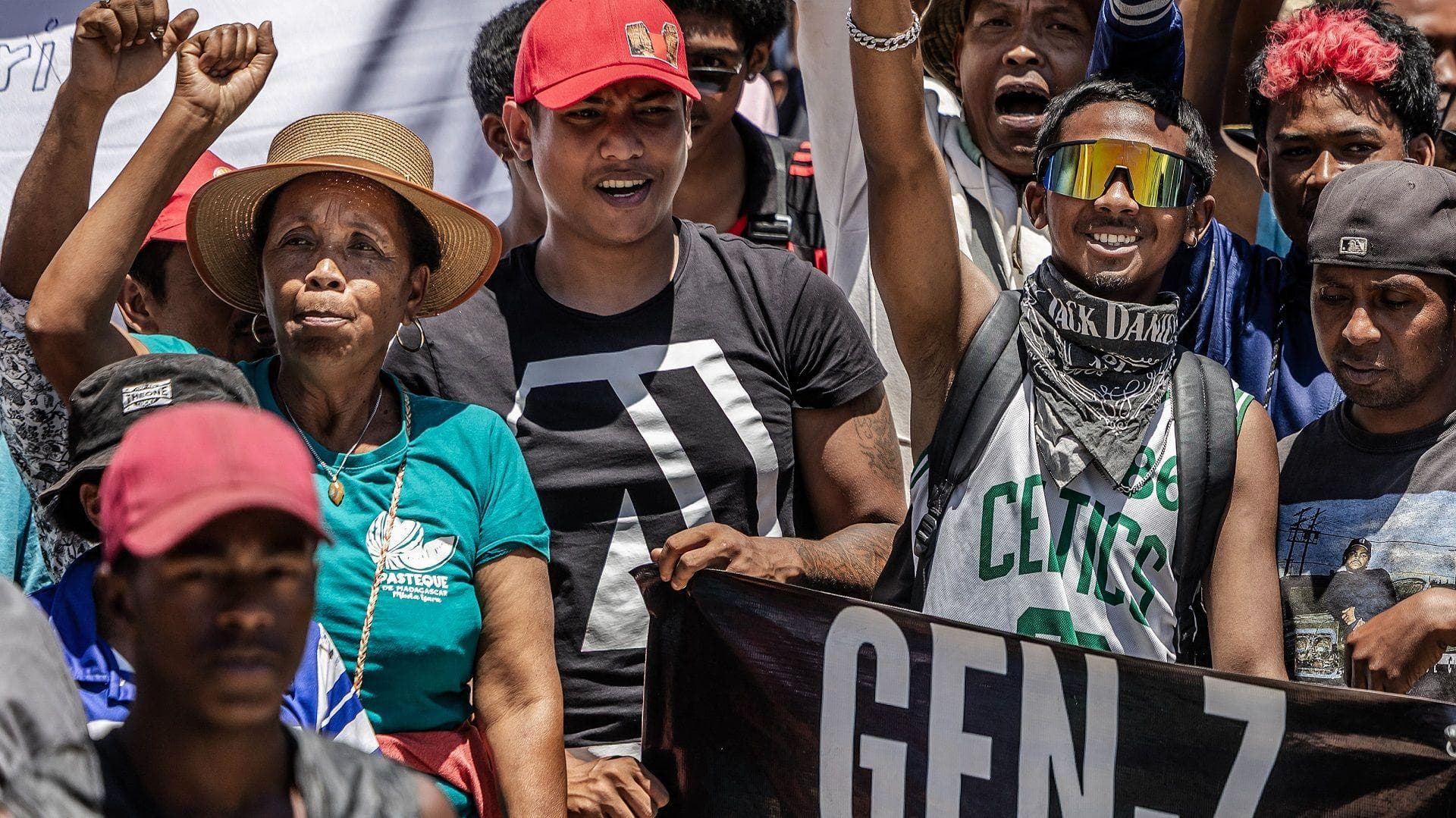We're loading the full news article for you. This includes the article content, images, author information, and related articles.
Madagascar's President Andry Rajoelina has announced he is in a 'safe place' following an alleged assassination attempt, as weeks of youth-led protests demanding his resignation escalate into a full-blown political crisis with military involvement.

Madagascar's President Andry Rajoelina, 51, declared on Monday, October 13, 2025, that he is in a "safe place" after an alleged assassination attempt. In a live broadcast on Facebook, Rajoelina stated that "a group of military personnel and politicians planned to assassinate me." He did not disclose his location, though unconfirmed reports from various sources, including Reuters and Radio France Internationale (RFI), suggested he had fled the country on a French military aircraft on Sunday, October 12, 2025.
This announcement comes amidst weeks of escalating anti-government protests across the Indian Ocean island nation, primarily driven by youth. The demonstrations, initially sparked by frequent power and water outages in the capital, Antananarivo, have broadened into widespread calls for Rajoelina's resignation, an end to corruption, and a radical overhaul of the political system.
The political turmoil intensified over the weekend when the Corps d'administration des personnels et des services administratifs et techniques (CAPSAT), an elite unit of the Madagascar Armed Forces, sided with the protesters. On Sunday, October 12, 2025, CAPSAT announced it was taking command of the military and appointed General Demosthene Pikulas as the new chief of the army staff, an appointment accepted by the defence minister. Colonel Michael Randrianirina, a CAPSAT commander, denied that a coup had taken place, asserting that they had "answered the people's calls." However, the presidency on Sunday described the situation as an "attempt to seize power illegally and by force."
Reports of heavy gunfire emerged over the weekend in Antananarivo as soldiers and armed groups clashed. A CAPSAT general reported that one of their soldiers was shot dead by the gendarmerie during the protests. On Monday, October 13, 2025, a faction of the paramilitary gendarmerie also broke ranks with the government and took control of the gendarmerie at a formal ceremony.
Madagascar has a turbulent political history marked by several coups and political crises since gaining independence from France in 1960. President Rajoelina himself first rose to prominence as the leader of a transitional government following a military-backed coup in 2009 that forced then-President Marc Ravalomanana to flee the country. The international community widely condemned Rajoelina's ascension in 2009 as unconstitutional, leading to a halt in financial support and foreign investments.
Rajoelina was elected president in 2018 and re-elected in 2023, though the latter election was boycotted by opposition parties and marred by allegations of irregularities and a fraught political atmosphere. Protests against his rule have been ongoing, with authorities often denying permits for demonstrations and using force to disperse gatherings.
The Malagasy Constitution outlines a semi-presidential republic with a president elected for a five-year term. However, the frequent political upheavals have often challenged constitutional norms. The current crisis highlights concerns about the rule of law and credible elections, with Madagascar exhibiting low-range performance in these categories according to the Global State of Democracy Framework.
In response to the initial protests, President Rajoelina dismissed Prime Minister Christian Ntsay's government on September 29, 2025, and appointed military general Ruphin Zafisambo as the new Prime Minister on October 6, 2025. However, these concessions failed to placate the protesters, who continued to demand Rajoelina's resignation.
The current protests are largely led by a youth movement dubbed "Gen Z Madagascar," inspired by similar movements globally. These young demonstrators express anger over economic inequality, rising costs, and a perceived disconnect between leaders and citizens. Hotel worker Adrianarivony Fanomegantsoa, 22, told Reuters that his monthly salary of 300,000 ariary (approximately $67) was barely enough for food, highlighting the economic hardship driving the protests.
Opposition leader Siteny Randrianasolonaiko has confirmed Rajoelina's departure and indicated that opposition members of the National Assembly would initiate impeachment proceedings against the president.
The current political instability in Madagascar poses significant risks, including further violence and a potential breakdown of constitutional order. The African Union (AU) Peace and Security Council convened an emergency session on Monday, October 13, 2025, to address the unrest, urging dialogue and restraint to safeguard democracy. The United Nations has also called for dialogue and restraint to prevent further violence.
Madagascar, where over 75% of the population lives below the international poverty line, faces severe challenges including chronic malnutrition and food insecurity. The ongoing crisis could exacerbate these issues and further deter foreign investment.
The exact whereabouts of President Rajoelina remain unconfirmed. While he stated he is in a "safe place," reports of him fleeing the country on a French military aircraft have not been officially verified by French officials.
The full extent of military involvement and the chain of command within the armed forces are also subjects of uncertainty. While CAPSAT has declared control, the loyalty of all military units remains to be seen.
The situation remains highly fluid. The African Union and other international bodies are expected to continue monitoring developments and press for a peaceful, constitutional resolution. The parliamentary opposition's intention to initiate impeachment proceedings against President Rajoelina indicates further political battles ahead.
Observers will be closely watching for any official confirmation of President Rajoelina's location, the military's unified stance, and the response of regional and international bodies. The potential for further clashes between security forces and protesters, as well as the trajectory of the impeachment process, will be critical in determining Madagascar's immediate future.
Keep the conversation in one place—threads here stay linked to the story and in the forums.
Sign in to start a discussion
Start a conversation about this story and keep it linked here.
Other hot threads
E-sports and Gaming Community in Kenya
Active 9 months ago
The Role of Technology in Modern Agriculture (AgriTech)
Active 9 months ago
Popular Recreational Activities Across Counties
Active 9 months ago
Investing in Youth Sports Development Programs
Active 9 months ago